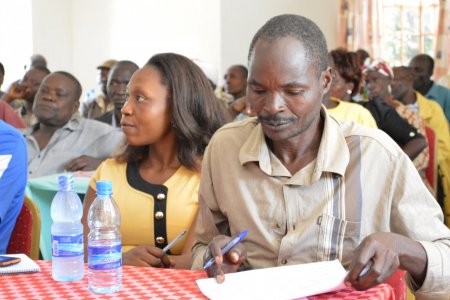 Wairimu Gitau/MSF
Interview
Wairimu Gitau/MSF
Interview
11/30/2022
Pierre Mendiharat
Elba Rahmouni
Léon Salumu Luzinga
This article was published on December 22nd, 2021, in the Journal of Humanitarian Affairs (Issue 3, Volume 3).
Despite a concerted international effort in recent decades that has yielded significant progress in the fight against HIV/AIDS, the disease continues to kill large numbers of people, especially in certain regions like rural Ndhiwa district in Homa Bay County, Kenya. Although there is still no definitive cure or vaccine, UNAIDS has set an ambitious goal of ending the epidemic by 2030, specifically via its 90-90-90 (treatment cascade) strategy – namely that 90 per cent of those with HIV will know their status; 90 per cent of those who know their status will be on antiretroviral therapy and 90 per cent of those on antiretroviral therapy will have an undetectable viral load. These bold assumptions were put to the test in a five-year pilot project launched in June 2014 by Médecins Sans Frontières (MSF) and Kenya’s Ministry of Health in Ndhiwa district, where an initial NHIPS 1 study by Epicentre (MSF’s epidemiology centre) in 2012 revealed some of the world’s highest HIV incidence and prevalence, and a poor “treatment cascade”. Six years later a new Epicentre study, NHIPS 2, showed that the 90-90-90 target had been more than met. What explains this ‘success’? And given the still-high incidence, is it truly a success? What follows is an interview on the political, scientific, and operational challenges of the Ndhiwa project with MSF Deputy Director of Operations Pierre Mendiharat and physician Léon Salumu, Head of MSF France Kenya programs, conducted by Elba Rahmouni.
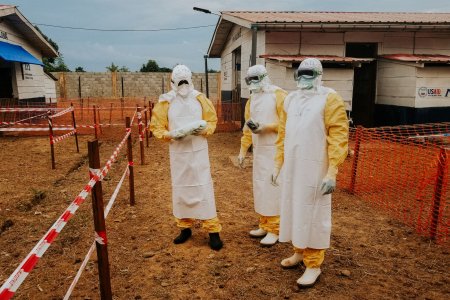 MSF
Analysis
MSF
Analysis
11/04/2022
This article was published on December 22nd, 2021 in the Journal of Humanitarian Affairs (Issue 3, Volume 3).
In this article, Natalie Roberts analyses the actions and positioning of MSF during the Ebola outbreak in Nord Kivu (Democratic Republic of Congo, 2018-2020).
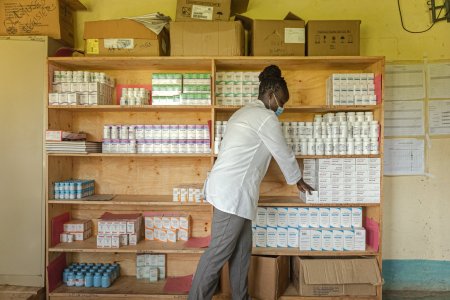 Njiiri Karago/MSF
Analysis
Njiiri Karago/MSF
Analysis
09/16/2022
Rony Brauman
In this article, Rony Brauman identifies the dynamics and events that made bending the HIV/AIDS epidemic curve possible. He explains the climate in which the tug-of-war with parts of the pharmaceutical industry played out from MSF’s perspective, and recalls that fears about international security and political stability also helped push governments to mobilise against the epidemic.
 Analysis
Analysis
05/16/2022
Bertrand Taithe
The Swiss editor Georg just published in open access a collection of articles edited by Sébastien Farré, Jean-François Fayet and Bertrand Taithe. This book is devoted to the emergence of humanitarian exhibitions either within wider events or in their own right, as an attempt to focus attention and make sense of the aid humanitarians provided. The book argues that this exhibition process was central to the narration of the humanitarian project. It did not simply represent humanitarian work, it helped shape its essential identity and sense of purpose. Entail the development of new ways of thinking about needs and emergencies.
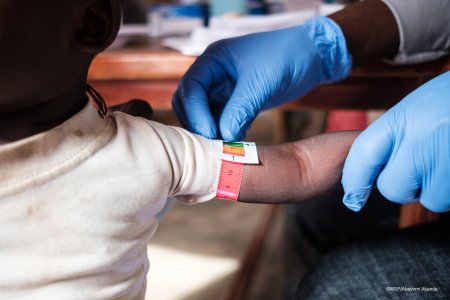 Abayomi Akande
Interview
Abayomi Akande
Interview
05/05/2022
Jean-Hervé Bradol
Elba Rahmouni
All the warning lights are flashing red this year: drought, the high prices of grains and fertilisers exacerbated by the war in Ukraine, reduced imports and speculation, numerous armed conflicts, a record number of refugees to be fed, disengagement of institutional donors,… With the exception of locusts, all the determinants of severe food scarcity are there, from Afghanistan to the Sahel, including Yemen, the Horn of Africa, and the Indian subcontinent. To the point of threatening all of the progress that was made in treating undernutrition after the 2005 crisis in Niger, which was the starting point for global advances in managing malnutrition in places where it is commonplace. It is time for a general mobilisation to limit the scale of the coming catastrophe. Interview with Jean-Hervé Bradol by Elba Rahmouni.
 Alexis Huguet/MSF
Analysis
Alexis Huguet/MSF
Analysis
04/27/2022
Elba Rahmouni
Olivier Guillard
Based on the example of the hospital in Moïssala, Chad, the two authors reflect on the management of pain in children at Médecins Sans Frontières. This article was first published on March 25th 2022 in the journal Alternatives Humanitaires.
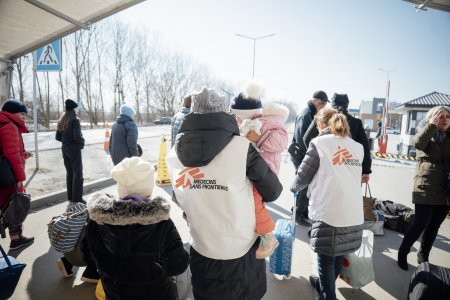 Peter Bräunig/MSF
Opinion
Peter Bräunig/MSF
Opinion
04/08/2022
Michaël Neuman
Thierry Allafort-Duverger
In a country with a solid medical infrastructure and faced with a large-scale international mobilisation, what is the place of MSF in Ukraine and beyond? "We are not currently in the front line of emergency care provision," write Thierry Allafort Duverger and Michael Neuman, who see our work in limited areas, particularly with those "left behind," and in the longer term.
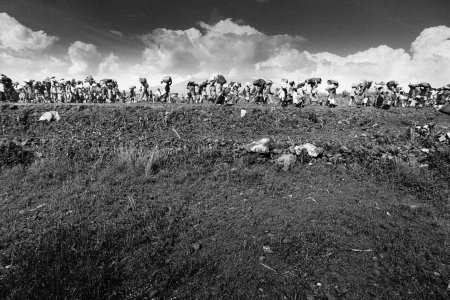 Remco Bohle
Review
Remco Bohle
Review
03/10/2022
Marc Le Pape
The film Empire of Silence, directed by Thierry Michel, examines the massacres committed in the Democratic Republic of the Congo from 1996 to the present. In this blog, Marc Le Pape introduces the film’s structure, some of the principal witnesses to the mass executions and some of the military and political actors responsible for them, and Congolese reactions to their impunity.
 Analysis
Analysis
11/14/2021
Elba Rahmouni
Pierre Mendiharat
Léon Salumu Luzinga
This article was first released in the 18th volume of the Humanitarian Alternatives magazine. Designed to reduce the incidence of HIV/AIDS in a Kenyan district, a Médecins Sans Frontières project successfully exceeded the “90-90-90” target set by UNAIDS. A look back on the results that the authors of this article - Pierre Mendiharat, Deputy director of operations at MSF France and Léon Salumu Luzinga, Program manager at MSF France, interviewed by Elba Rahmouni - believe are encouraging but by no means a guarantee that the epidemic will be over by 2030.
 Opinion
Opinion
10/27/2021
Mego Terzian
In his book, La Traversée. Une odyssée au cœur de l’Afrique, Patrick de Saint-Exupéry challenges the reality of Hutu Rwandan refugees’ hunt and massacre facing the advancement of the Rwandan Patriotic Army and their Congolese allies in 1996-97. This systematic exercise of denying reality – especially the denial of the Mapping Report written by the Office of the United Nations High Commissioner for Human Rights (1143 pages, published in June 2009) – but also this denial of Human Rights Advocacy groups’ investigations, and those of journalists’ witnesses present in DRC at the time – does not spare MSF’s teams who came to help these refugees in 1996-97. However, as a front-line witness of the Tutsi genocide in Rwanda, MSF was also one of the organizations noticing the intense violence perpetrated by the new Rwandan political regime in Zaire / DRC back in 1996 and 1997, mostly against a population constituted at three-quarters of women and children.
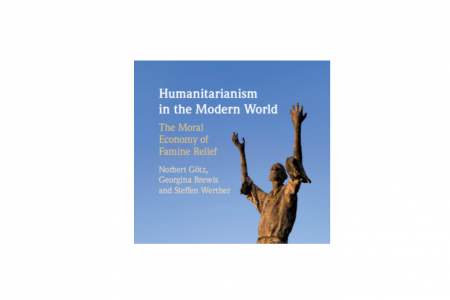 Cambridge University Press
Review
Cambridge University Press
Review
07/01/2021
Michaël Neuman
“Humanitarianism in the Modern World. The moral economy of famine relief” published by Cambridge University Press, is an open access book written by a team of three people, whose aim is to provide a history of contemporary humanitarianism through the prism of famines. Norbert Götz, Georgina Brewis and Steffen Werther are treading on fertile ground, as the number of publications on the history of humanitarianism has multiplied in recent years. However, the contribution they present here is rich and original.
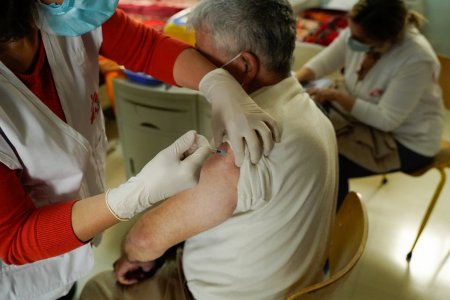 Mohamad Cheblak/MSF
Review
Mohamad Cheblak/MSF
Review
05/07/2021
Michaël Neuman
Natalie Roberts
We can all agree that the emergence of Covid-19 vaccine is “an absolutely astonishing development”, but vaccines are unlikely to completely halt the spread of the virus, let alone eradicate it. Yet even without achieving herd immunity, the ability to vaccinate vulnerable people seems to be reducing hospitalizations and deaths from Covid-19.
 Wairimu Gitau/MSF
Interview
Wairimu Gitau/MSF
Interview










